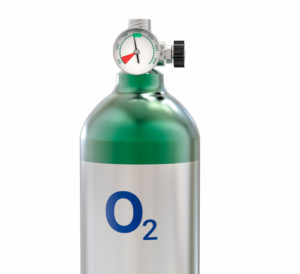$2.6 Million Whistleblower Settlement With Bay Sleep Clinic
The clinic will settle whistleblower allegations of using unlicensed technicians and unapproved locations and of doctor kickback referrals.
Constantine Cannon LLP is pleased to announce a $2.6 million settlement on behalf of its client for whistleblower allegations against Bay Sleep Clinic. The settlement was announced by the United States government on December 28, 2016, against Bay Sleep Clinic, which currently operates 20 locations throughout northern California; its related Qualium Corporation and Amerimed Corporation businesses; and owners and operators Anooshiravan Mostowfipour and Tara Nader.
The “qui tam,” or whistleblower, lawsuit alleged that the defendants fraudulently billed Medicare for sleep studies conducted by unlicensed individuals in unapproved locations; improperly dispensed durable medical equipment from unapproved locations using unlicensed technicians; and paid doctors for referrals in violation of the federal Anti-Kickback Statute. The defendants neither admitted nor denied liability.
The whistleblower, Elma F. Dresser, is a former Bay Sleep Clinic employee who worked as a sleep technician and marketer for eight years. Through her various roles at the company, Ms. Dresser became familiar with the defendants’ alleged scheme to bilk money from Medicare. She filed her suit in 2012, leading the government to investigate the claims and join the case.
Ms. Dresser was represented by
Eric R. Havian, partner and attorney,
Jessica T. Moore, partner and attorney,
Anne Hayes Hartman, partner and attorney,
Hallie Noecker, attorney, and
Sarah Poppy Alexander, attorney of Constantine Cannon’s whistleblower practice in San Francisco, along with co-counsel from the Law Office of William C. Dresser.
“It’s rewarding to see the alleged fraudsters held responsible. Because of the close cooperation and work between the whistleblower and the government, we were able to recover significant funds for the government,” said Anne Hayes Hartman, co-lead counsel on the case. “It is gratifying to represent people like Elma Dresser, who bravely stepped forward with knowledge of her employer’s wrongdoing. Many do not appreciate the risks whistleblowers face to hold alleged wrongdoers accountable.”
“Sleep studies are a quickly expanding medical field,” said Jessica T. Moore, who served as co- lead counsel on the case. “Ensuring the safety of these procedures should be a top priority of the government for all patients, Medicare and otherwise.”
The federal False Claims Act allows whistleblowers to sue companies that are defrauding the government and receive a reward if the government recovers any funds as a result. The government may choose to intervene in the lawsuit, as it has done in this case. The False Claims Act is one of the government’s most effective weapons in combatting fraud, waste, and abuse by those who contract with the government. Healthcare fraud alone is estimated to cost the U.S. billions of dollars. Such fraud can be difficult to discern without access to inside information; well-placed whistleblowers are necessary to provide the information the government might otherwise lack to help stop these practices.
 By the C|C Whistleblower Lawyer Team
The Justice Department announced the settlement on Monday, which resolves allegations that Memphis’s Poplar Healthcare and its subsidiary GI Pathology promoted and billed the government for medically unnecessary diagnostic tests.
Poplar allegedly marketed certain stain tests as capable of definitely diagnosing a condition called mast cell enterocolitis. But according to...
By the C|C Whistleblower Lawyer Team
The Justice Department announced the settlement on Monday, which resolves allegations that Memphis’s Poplar Healthcare and its subsidiary GI Pathology promoted and billed the government for medically unnecessary diagnostic tests.
Poplar allegedly marketed certain stain tests as capable of definitely diagnosing a condition called mast cell enterocolitis. But according to...
 By the C|C Whistleblower Lawyer Team
Yesterday, the Department of Justice announced that as Pacific Pulmonary Services will pay $11.4 million to settle a False Claims lawsuit. At issue in the case were allegedly false claims to Medicare and other federal healthcare programs for oxygen and related equipment supplied in violation of program rules, as well as claims for sleep therapy equipment tainted by a kickback...
By the C|C Whistleblower Lawyer Team
Yesterday, the Department of Justice announced that as Pacific Pulmonary Services will pay $11.4 million to settle a False Claims lawsuit. At issue in the case were allegedly false claims to Medicare and other federal healthcare programs for oxygen and related equipment supplied in violation of program rules, as well as claims for sleep therapy equipment tainted by a kickback...